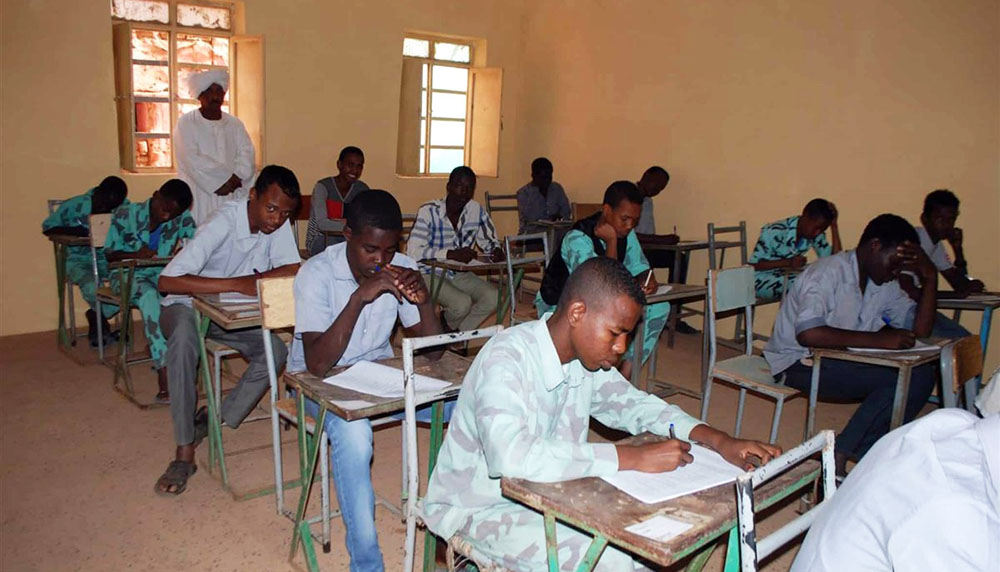
Sudanese Secondary School Examination: A Gateway to Peacebuilding
By Khalid Massa
Throughout the history of Sudans national education system, the Sudanese Secondary School Examination has remained one of the most steadfast pillars upheld by every educational administration under the Ministry of Education. Despite significant global advancements in educational philosophy and assessment methodologies that transcend traditional pass-or-fail exam frameworks, Sudan’s education policymakers have clung to this exam as the sole determinant of students’ eligibility to transition from general education to higher education. This rigid approach poses a formidable obstacle for examinees.
The concept of "nationalism" embedded in the exam’s design has largely been superficial, limited to the centralized printing of exam papers, their distribution under strict security measures across Sudan’s states, and the Ministry’s annual announcement of results. This process is touted as embodying justice and equality for all candidates, yet the outcomes often fail to reflect true equity.
Education in Peacetime: Limited Resources and Structural Inequality
In times of peace, disparities in education stemmed primarily from the differences between public and private education, the state’s ability to provide adequate resources (textbooks, qualified teachers, and a conducive learning environment), and its budget allocation priorities. These inequities, deeply rooted in systemic failures, have long been a critical factor in the fractures of Sudan’s social fabric. Equal and fair education has consistently been a cornerstone of any vision for sustainable peace in Sudan.
The War’s Impact on Education
The April 2023 war has radically altered Sudan’s educational landscape. The crisis has disrupted the academic trajectory of students preparing for the Sudanese Secondary School Examination in 2023 and 2024. These students form a significant subset of the alarming statistics of displaced persons, refugees, and casualties.
War has severely impacted all stakeholders in the educational process:
Students: Many were displaced, depriving them of the psychological and mental stability essential for exams. They missed nearly 40% of the internationally recognized academic year.
Teachers: Already battling for fair wages, they faced salary losses for two years, while schools became refuge shelters for displaced families, rendering many schools inoperable.
The Ministry of Education: The war disrupted its communication with staff, hindered their duties, and dried up financial resources critical for fulfilling its responsibilities.
Exam Amidst Conflict
Despite these grim circumstances, the Ministry of Education, through the High Committee for Sudanese Certificate Examinations, has expressed confidence in its preparations to hold the exams on December 28, 2023. This confidence hinges on measures such as establishing two emergency centers in Damer and Atbara for students to attend a day before the exam and offering a supplementary sitting three months later for those unable to participate in December.
However, these measures fail to address the broader inequities. Students in war-torn areas cannot reasonably prepare for exams under such conditions, leaving them at a disadvantage compared to their peers in relatively stable regions.
Education as a Peacebuilding Tool
To build peace in a country like Sudan, education—particularly the Sudanese Secondary School Examination—must retain its integrity and provide equitable opportunities, free from political agendas. The students affected by the current crisis represent Sudan’s future, and the ongoing war threatens to destroy their potential along with the nations past and present.
Sudanese street slogans like “No education in dire conditions” and “The death of a student is the death of a nation” reflect a deep awareness of the critical role education plays in social cohesion.
A Call for a Humanitarian Truce
As the December exams approach, we respect the Ministry’s decision but urge efforts to ensure minimum safety for examinees. This includes a ceasefire during exam days as a moral truce, safe pathways for students traveling to exam centers, and fulfilling teachers’ basic demands. While these measures are unlikely to address all the challenges faced by war-affected students, they could mitigate some of the injustices exacerbating Sudan’s conflict dynamics.

